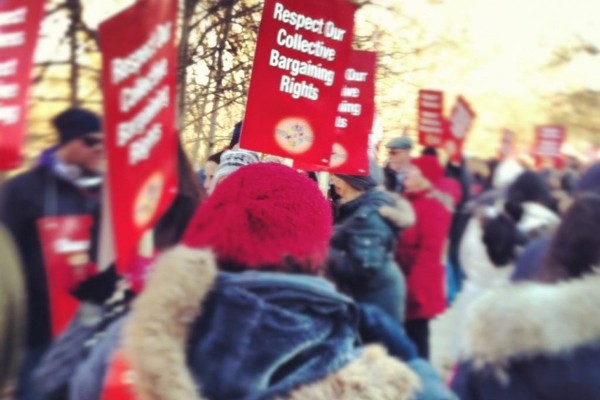-

Essays on Indigenous struggles offer both insight and oversight
Indigenous occupations are thus not simply a breach of Canadian legal orders but also a reassertion of Indigenous law. Unfortunately, too often the focus of Blockades or Breakthroughs on intricate conflicts within Indigenous communities obscures the larger contest with colonialism that underlies Indigenous peoples’ adoption of direct action.
-

Struggles against a gold mine on Indigenous land
For many Tsilhqot’in families raised on the nearby shores of adjoining Little Fish Lake, this place is home. Tsilhqot’in youth continue to maintain a relationship with Teztan Biny that has spanned generations. The stories and ceremonies associated with the lake are part of Tsilhqot’in identity and way of life. For Vancouver-based Taseko Mines, Fish Lake is the chief obstacle to development in the region.
-

Homeless Hotspot
There has been substantial debate, and much virtual ink spilt, over the Homeless Hotspot program in Austin, Texas. The program is relatively straightforward from the title: 13 homeless men and one woman with mobile wireless internet hotspots in their pockets hawking internet access on street corners. Launched at SXSW, the premier gathering of hip indie rockers, it has been read by many as the corporate horror-tech future to come, where poor people are little more than machines designed to serve as human infrastructure to extend the privilege of the few.
-

Alliances: Re/ Envisioning Indigenous non- Indigenous Relationships
From movement organizing to individual relationships, Lynne Davis’s new anthology, Alliances, explores the tensions and possibilities of coalitions between Indigenous and non-Indigenous peoples today.
-

Tough union, tough lessons
Sections of CUPE 3903 were motivated by the dream of a general strike. But their self-aggrandizement and disdain for working with other unions effectively undermined the objective conditions that would make such a struggle possible and winnable. While unions must be willing to strike to win, it is also necessary to build coalitions and to coordinate larger collective actions.
-

There is no honour in the Crown
Despite their release, the problem for KI and other Aboriginal communities in Ontario remains essentially the same. There is a fundamental conflict between provincial law, which grants unfettered access to land in Ontario for mining development, and the government’s obligations under treaty to honour First Nations’ relationships to their traditional lands.
-

No Indians Allowed on Aboriginal Territory at Sun Peaks
On September 22, 2004, the RCMP raided a First Nation camp on the golf course of the Sun Peaks Resort, near Kamloops, British Columbia, arresting three people and destroying the camp. Members of local Secwepemc (also known in English as Shuswap) communities had established the camp, called the Skwelkwek’welt Protection Centre in late August to oppose the continued development of Sun Peaks on the traditional territory of the Secwepemc, Neskonlith and Adams Lake bands. In removing the camp and arresting those Skwelkwekwelt defenders who refused to leave, the police were enforcing a provincial court injunction ordering local Aboriginal activists and their supporters off the mountain. These arrests represent just one instance in the ongoing repression of Secwepemc peoples fighting for their land and dignity; during the past six years of the conflict, 54 Skewelkwek’welt defenders have been arrested.



